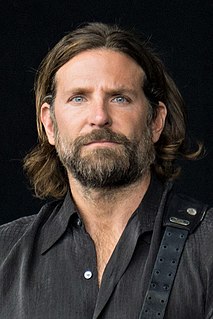A Quote by Tabitha King
In literature, the ghost is almost always a metaphor for the weight of the past. I don't believe in them in the traditional sense.
Quote Topics
Related Quotes
The traditional metaphor for careers is a ladder, but I no longer think that metaphor holds. It just doesn’t make sense in a less hierarchical world... Build your skills, not your resume. Evaluate what you can do, not the title they’re going to give you. Do real work. Take a sales quota, a line role, an ops job. Don’t plan too much, and don’t expect a direct climb. If I had mapped out my career when I was sitting where you are, I would have missed my career.
It seems to me that literature is giving way a little bit to the immediacy of other diversions, other forms of entertainment. What will it be in fifty years? I don't know. Will there be printed books? Probably, but I'm not sure. There's always going to be literature, though. I believe that. I think literature has a way of getting deep into people and being essential. Literature has its own powers.
It is not the literal past that rules us, save, possibly, in a biological sense. It is images of the past. Each new historical era mirrors itself in the picture and active mythology of its past or of a past borrowed from other cultures. It tests its sense of identity, of regress or new achievement against that past.
I sense the world might be more dreamlike, metaphorical, and poetic than we currently believe--but just as irrational as sympathetic magic when looked at in a typically scientific way. I wouldn't be surprised if poetry--poetry in the broadest sense, in the sense of a world filled with metaphor, rhyme, and recurring patterns, shapes, and designs--is how the world works. The world isn't logical, it's a song.
The facts of nature are what they are, but we can only view them through the spectacles of our mind. Our mind works largely by metaphor and comparison, not always (or often) by relentless logic. When we are caught in conceptual traps, the best exit is often a change in metaphor not because the new guideline will be truer to nature (for neither the old nor the new metaphor lies "out there" in the woods), but because we need a shift to more fruitful perspectives, and metaphor is often the best agent of conceptual transition.
As for literature – to introduce children to literature is to install them in a very rich and glorious kingdom, to bring a continual holiday to their doors, to lay before them a feast exquisitely served. But they must learn to know literature by being familiar with it from the very first. A child's intercourse must always be with good books, the best that we can find.



































